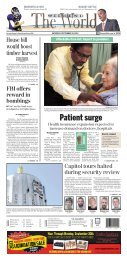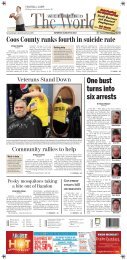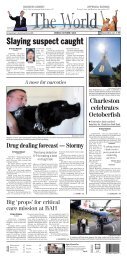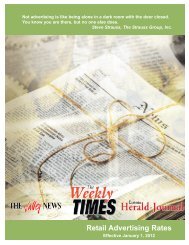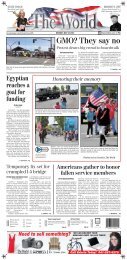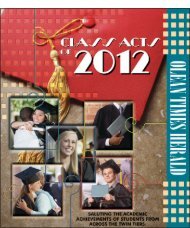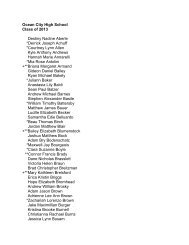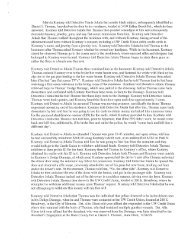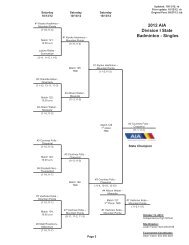1 IN THE IOWA DISTRICT COURT FOR DES ... - TownNews.com
1 IN THE IOWA DISTRICT COURT FOR DES ... - TownNews.com
1 IN THE IOWA DISTRICT COURT FOR DES ... - TownNews.com
You also want an ePaper? Increase the reach of your titles
YUMPU automatically turns print PDFs into web optimized ePapers that Google loves.
These questions arguably amount to “second-guessing” counsel or “Mondaymorning<br />
quarterbacking.” There are undoubtedly other difficult questions that could be<br />
asked of trial counsel with the benefit of hindsight. This Court must avoid the temptation<br />
to use hindsight to require that trial counsel’s performance have been perfect. The<br />
Sixth Amendment demands only “reasonable <strong>com</strong>petence, the sort expected of the<br />
ordinary fallible lawyer.” 194 F. 3d at 941.<br />
In the end, the only evidence McGhee produced that the State withheld Exhibits<br />
2, 3 and 5 is his testimony, the inference that can be drawn from the failure to mention<br />
the reports at trial and the request for Hoeper’s notes, and the suggestion that if the<br />
State didn’t produce the documents to White’s counsel, it likely did not produce them for<br />
Darbyshire. Balanced against this evidence is Darbyshire’s testimony that he had<br />
Exhibits 2, 3, and 5. When this evidence is weighed, the Court cannot conclude that<br />
McGhee has proved by a preponderance of the evidence that the State withheld<br />
material, exculpatory evidence.<br />
The distinctions between White’s case and McGhee’s case are many. First,<br />
White did not have access to the police reports that McGhee’s counsel testified he saw<br />
and read. Next, witness Stouffer did not give directly inconsistent identifications about<br />
McGhee like he did of White and Cunningham. This inconsistency caused the Eighth<br />
Circuit to conclude Stouffer’s identification of White constituted “an inference of<br />
suggestiveness so strong” that the trial court might have excluded it. This inconsistency<br />
allowed the Court to find that Stouffer’s testimony was “very likely false.” This Court<br />
declines to draw these same conclusions about Stouffer’s testimony vis-à-vis McGhee.<br />
21




